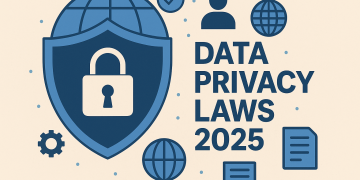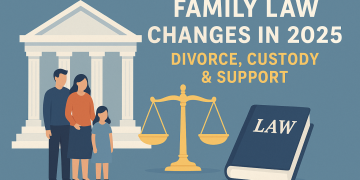Employment law updates in 2025 are reshaping how workers experience their rights, benefits, and workplace protections. Governments and labor agencies around the world have implemented new measures aimed at fairer wages, safer work environments, improved leave entitlements, and stronger anti-discrimination rules.
Whether you’re an employee, contractor, or job seeker, understanding these legal changes empowers you to make informed decisions, report violations, and advocate for fair treatment. Here are the most important updates every worker should know in 2025.
1. Strengthened wage protection and pay transparency
Many countries have updated their minimum wage laws to keep pace with inflation and economic shifts. Pay transparency rules have also expanded, requiring employers to disclose salary ranges in job postings and internal policies.
- Why it matters: Pay transparency reduces wage discrimination and promotes fairer compensation.
- Worker benefit: Employees gain stronger grounds to challenge unequal pay.
- Compliance tip: Employers must ensure salaries are clearly documented and fairly structured.
Tip: Always keep your pay slips and employment contract. They are key legal documents in wage disputes.
2. Expanded workplace protections against discrimination
Workplace discrimination laws in 2025 have broadened to include additional protected categories such as gender identity, neurodiversity, and caregiving status. Employers are required to implement inclusive hiring practices and provide regular anti-discrimination training.
- Broader legal definitions of harassment and discrimination.
- Mandatory diversity and inclusion training in many sectors.
- New reporting channels to make it easier for employees to file complaints safely.
3. Updated leave entitlements and flexible work policies
Several labor codes now guarantee more generous parental, sick, and caregiving leave. Flexible work arrangements — including hybrid and remote work rights — are increasingly being written into law rather than left to company policy.
- Longer paid parental leave in many jurisdictions.
- Legal protections for remote workers, including health and safety standards.
- More flexible scheduling rights for parents and caregivers.
Note: If you’re working remotely, your legal protections may extend beyond your physical office location.
4. Stronger workplace health and safety standards
Post-pandemic workplace safety standards remain a top priority in 2025. Regulations now emphasize mental health support alongside physical safety, with requirements for employers to implement mental wellness programs and risk assessments.
- Regular workplace safety inspections and compliance checks.
- Stricter penalties for failing to provide safe conditions.
- Mental health initiatives recognized as part of occupational safety law.
5. Gig economy and contract worker protections
Legal protections are expanding to cover gig workers and freelancers, who historically had fewer rights than traditional employees. Governments are introducing new definitions of worker status to ensure fair pay, benefits, and collective bargaining rights.
- Minimum earnings guarantees for platform workers.
- Access to benefits like health insurance and leave for contractors.
- Rules ensuring platform transparency around algorithms and work allocation.
6. Data privacy and workplace surveillance laws
As remote and hybrid work grows, new regulations are limiting how employers can monitor employees. These laws balance employer security needs with workers’ rights to privacy.
- Employers must disclose any monitoring tools used on company devices.
- Employees have the right to know what data is collected and why.
- Penalties for unauthorized surveillance or misuse of employee data.
7. Labor union and collective bargaining rights
Union rights are being reinforced in many jurisdictions, with easier paths to unionization and stronger legal protection against retaliation. Collective bargaining agreements are increasingly shaping wages, benefits, and workplace conditions.
- Faster union registration processes.
- Expanded rights to collective action for contract and gig workers.
- Stricter penalties for employers who interfere with union activities.
8. Worker classification and employment status
Worker misclassification remains a global issue. New laws are cracking down on employers who classify full-time employees as independent contractors to avoid paying benefits and taxes.
- Stricter definitions of “employee” vs. “contractor.”
- Retroactive liability for unpaid benefits or wages.
- Government audits targeting industries with high misclassification rates.
9. How workers can protect their rights in 2025
- Read and understand your employment contract thoroughly.
- Keep records of wages, leave, and workplace communication.
- Know your reporting channels for harassment or discrimination.
- Stay informed about labor law updates in your country or region.
- Consult legal or union support when needed.
Pro tip: Empower yourself with knowledge. Understanding your legal rights is the first step to enforcing them.
© 2025 OmarosaOmarosa.com — This article is for informational purposes only and does not constitute legal advice. Always consult local labor authorities or legal counsel for specific guidance.









